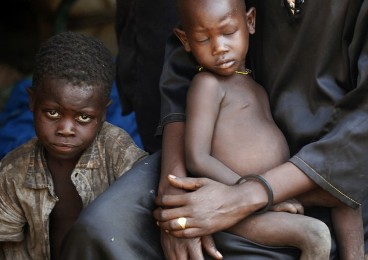SPLM-N rebels reiterate call for humanitarian access, propose ceasefire
September 29, 2012 (KHARTOUM) — Sudan People’s Liberation Movement –North (SPLM-N) renewed its call for unfettered humanitarian access to the affected civilians in the areas under its control, and accused government army of carrying new attacks in South Kordofan.

The political talks between Khartoum and SPLM-N rebels are stalled in Addis Ababa as the government rejects rebels demands for comprehensive process but also wants that Juba stops its support to the rebels before any negotiations.
Also on the humanitarian level, Sudan failed to implement a deal, signed last August, providing that UN agencies can reach rebel held areas from Sudan with African and Arab monitors to ensure that only civilians benefit from the humanitarian assistance.
SPLM-N Secretary General, Yasir Arman said South Kordofan and Blue Nile are experiencing the “worst humanitarian crisis in Africa today” and called on the international community to condemn Sudan for “refusing humanitarian access” and to response urgently to the humanitarian crisis there.
Arman, reiterated in a statement extended to Sudan Tribune on Friday that his group can accept a ceasefire in the two states of Blue Nile and South Kordofan but stressed such deal must be linked to free humanitarian access to the Tow Areas.
“SPLM-N delegation to Addis Ababa talks proposed on many different occasions that the humanitarian operation and opening of the unrestricted access should be linked to a cessation of hostilities,” Arman said.
The ceasefire, according to the rebel leader, “will end the suffering of the civil populations and provide a conducive atmosphere for the political settlement as well as enabling all the parties to put an effective demilitarized buffer zone in place,” he further said.
The SPLM-N says its troops control over 40% of Sudan’s border with South Sudan in Blue Nile and Nuba Mountains in South Kordofan, insinuating that the ceasefire is crucial for a successful implementation of security deal reached in Addis Ababa between Juba and Khartoum.
Arman said the summit meeting gathering presidents Omer Al-Bashir and Salva Kiir ended with “a total failure to recognize the humanitarian situation.” He stressed that Khartoum adamantly refused to negotiate with the SPLM-N in accordance with UN Security Council Resolution 2046 and on the basis of the June 28, 2011 Framework Agreement.”
UN Security Council in a statement released on Friday 28 September expressed its grave concern about the “rapidly worsening humanitarian situation in South Kordofan and Blue Nile States.” The 15 members council further urged Sudanese government and SPLM-N to implement the tripartite plan as quickly as possible.
The Council also called on “the parties to engage in direct talks to urgently agree to and implement a cessation of hostilities and create a conducive environment for further progress on political and security issues.”
However, Arman accused the Sudanese army of preparing for “an early dry season offensive”, adding that it carried fresh attacks in Blue Nile and South Kordofan triggering new waves of refugees.
According to the SPLM-N secretary general, the Sudanese troops started an early dray season offensive in Blue Nile “at the eve of the Addis Ababa summit from ground and air that targeted internally displaced civilians and it resulted in displacing more than 15,000 civilians.”
He went further to say that on 27 September, where Sudan and South Sudan signed different agreements, the army war planes killed a woman and wounded six others during a an air raid on a rural area in the Nuba Mountains called Hiban on a day market gathering some 2000 people.
Khartoum recently accused the members of the tripartite initiative of cancelling several meetings that led to the delay. However, it pledges to start the humanitarian operation soon but still the issue remains under discussion.
(ST°
